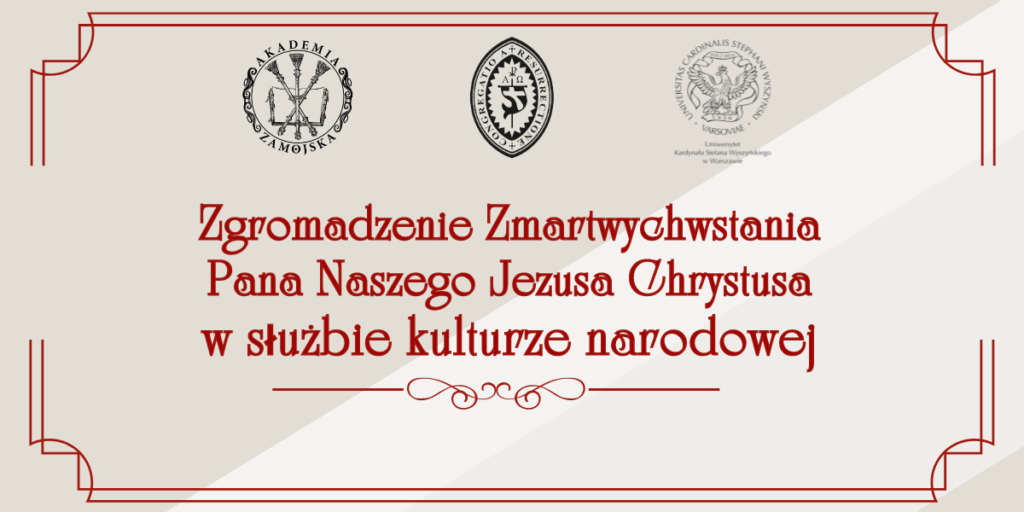Conference “Zgromadzenie Zmartwychwstania Pana Naszego Jezusa Chrystusa w służbie kulturze narodowej”

On December 15th in Rome, a conference called “Zgromadzenie Zmartwychwstania Pana Naszego Jezusa Chrystusa w służbie kulturze narodowej” took place. The organizers of the conference were the General House of the Congregation of the Resurrection, the Academy of Zamość, and the Cardinal Stefan Wyszyński University in Warsaw.
During the scientific meeting, presentations were delivered by various scholars, including Dr Piotr Kondraciuk, Academy of Zamość, Polar Research Museum in Puławy, (St. Cajetan of Thiene – the patron of the Resurrectionists), Mirosław Lenart, PhD, the Institute for Research on the Renaissance and Baroque, (The idea of chivalry in the sermons and speeches of Aleksander Jełowicki), Dr Renata Bizek-Tatara, Maria Curie-Skłodowska University in Lublin, Dr Małgorzata Wrześniak, Cardinal Stefan Wyszyński University in Warsaw, (The concept of education and youth protection in the doctrine of the Resurrectionists).
The primary goal of the conference was to disseminate knowledge about the Congregation of the Resurrection, which had its origins in France in the first half of the 19th century (the order itself was founded in Rome). Bogdan Jański, Piotr Semenenko, and Hieronim Kajsiewicz, considered the founders of the congregation, were the first members of this community and simultaneously active advocates for the Polish cause during the Great Emigration. The most significant figure and initiator of the congregation’s activities, however, was Bogdan Jański, also known as the “apostle of emigration”. According to his intentions, the congregation, of which he was a co-founder, aimed to help compatriots living abroad as well as Poles in the country, primarily in a spiritual context. Over time, the congregation’s activities, mainly due to the departure of key activists and initiators for studies in Italy, were relocated to Rome. It primarily focused on institutions such as Caffe Greco, the Odescalchi Palace, and the monastery of the Resurrectionist Fathers at Via San Sebastianello 11, which eventually became the centre of Polish emigration activities in the capital of Italy.
The event was part of the project “Valorization and Accessibility of Collections from the Time of the Great Emigration and the Establishment of the Congregation of the Resurrection”, financed by the Ministry of Culture and National Heritage of the Republic of Poland.

The conference program:

